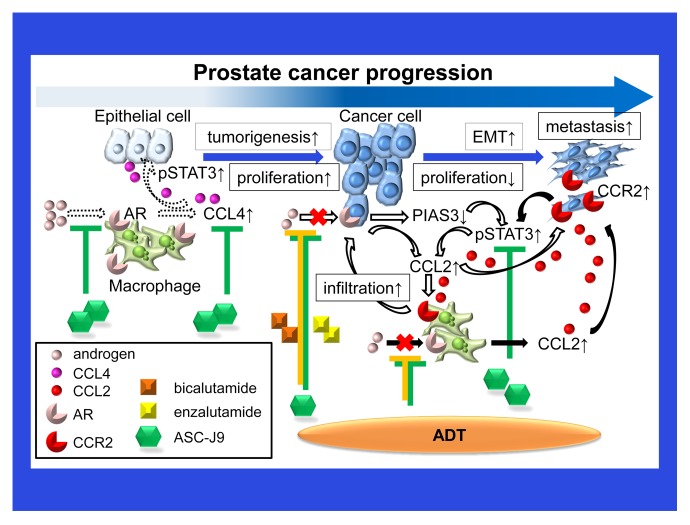Figure 1. Chemokines mediate a vicious cycle between prostate cancer cells and macrophages that drives disease progression. Tumor-infiltrating macrophages and inflammatory cytokines such as chemokine (C-C motif) ligand 4 (CCL4) play a key role in prostatic tumorigenesis via an androgen receptor (AR)-, and signal transducer and activation of transcription 3 (STAT3)-dependent signaling axis (dashed arrows). As bicalutamide or enzalutamide reduce the AR-mediated expression of protein inhibitor of activated STAT, 3 (PIAS3), and stimulate the chemokine (C-C motif) ligand 4 (CCL4)- and STAT3-dependent signaling pathway, they promote the migration of macrophages toward prostate cancer cells, thus enhancing the invasiveness of the latter (white arrows). Suppressing the function of the AR in macrophages simultaneously triggers undesirable inflammatory signals that prompt macrophage infiltration and stimulate prostate cancer progression through the activation of a CCL2/CCR2/STAT3 signaling axis (black arrows).

An official website of the United States government
Here's how you know
Official websites use .gov
A
.gov website belongs to an official
government organization in the United States.
Secure .gov websites use HTTPS
A lock (
) or https:// means you've safely
connected to the .gov website. Share sensitive
information only on official, secure websites.
